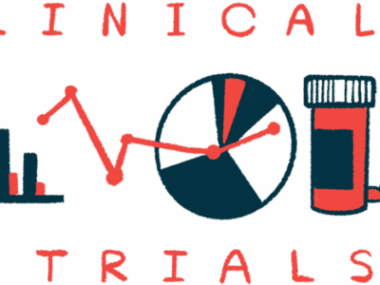BJT-778 antibody therapy shows early promise in Hep D trial
Virus levels, liver inflammation markers reduced in chronically infected people
Written by |

Bluejay Therapeutics’ investigational antibody therapy BJT-778 appears to safely and effectively lower levels of the hepatitis D virus (HDV) and markers of liver inflammation in people with chronic hepatitis D, according to preliminary data from a Phase 2 clinical trial.
The findings were shared in a poster, titled “Rapid Reductions of HDV RNA and ALT with the Monoclonal Antibody, BJT-778: Results from a Phase 2 Study,” at the recent European Association for the Study of the Liver Congress 2024, held in Milan, Italy.
“We are pleased to present the first look at the safety and clinical activity of BJT-778, which supports the potential for BJT-778 to address unmet needs for the millions of people in the world living with chronic hepatitis D,” Keting Chu, MD, PhD, founder and CEO of Bluejay, said in a company press release.
BJT-778 recommended for orphan drug status for chronic hepatitis D
In addition, a European Medicines Agency committee recently issued a positive opinion recommending that BJT-778 be granted orphan drug designation for chronic hepatitis D.
This status offers incentives to accelerate the development of treatments for life-threatening or debilitating rare diseases, defined as one affecting no more than five per every 10,000 people in the European Union (EU).
“This recognition underscores the urgent need for new treatment options for people living with this devastating chronic infection,” Chu noted in a separate press release. “We are eager to accelerate the development of BJT-778 and make it available to patients as soon as possible.”
The therapy also holds Priority Medicines designation in the EU, which is similarly intended to speed its development.
As with other forms of hepatitis, hepatitis D is characterized by inflammation of the liver. It’s caused by infection with HDV, but for such an infection to happen, a person must already be infected with the hepatitis B virus (HBV), which causes hepatitis B.
Chronic HDV infections are the most severe form of viral hepatitis, according to Bluejay. Left unmanaged, patients can develop life-threatening complications such as cirrhosis — irreversible scarring and damage to the liver — liver cancer, and liver failure.
Hepatitis D can only occur in the presence of an HBV infection because on its own, the HDV cannot replicate and invade new cells — it needs to use proteins made by HBV to do so. In particular, both HDV and HBV rely on an HBV protein called the hepatitis B surface antigen, or HBsAg, to infect human cells.
BJT-778 designed to neutralize, clear HDV and HBV infectious proteins
BJT-778 is an antibody targeted against HBsAg to neutralize and clear HDV and HBV infectious proteins, preventing them from invading uninfected cells and helping restore antiviral immune responses.
The treatment’s safety and efficacy are being evaluated in an ongoing Phase 1/2 trial. Different parts of the study involve healthy volunteers, people with chronic HBV infections, and people with chronic HBV and HDV co-infections.
The third, Phase 2 part of the study (ACTRN12623000105640) includes adults, ages 18-70, with chronic hepatitis B and D, who are receiving antiviral therapies for hepatitis B.
Participants are assigned to one of three BJT-778 dosing regimens, in which they receive the therapy via under-the-skin injections for 48 weeks, or nearly a year.
Specifically, group 1 is receiving BJT-778 at a dose of 300 mg once weekly, group 2 is administered 600 mg once weekly for three months followed by once every two weeks thereafter, and group 3 gets 900 mg every two weeks in the first month, followed by once per month.
As of May 24, 31 patients had been enrolled. The 10 people in group 1 had all been treated for at least 24 weeks (six months), the 11 people in group 2 had reached three months of treatment, and the 10 patients in the third group had been treated for less than a month.
Recently presented data covered preliminary efficacy findings in groups 1 and 2, as well as safety data across all three groups.
We are pleased to present the first look at the safety and clinical activity of BJT-778, which supports the potential for BJT-778 to address unmet needs for the millions of people in the world living with chronic hepatitis D.
Virologic response after 6 months of treatment with weekly 300 mg dose
After about six months of treatment with the weekly 300 mg dose, all 10 patients in group 1 achieved a virologic response, defined as blood HDV levels below the limit of detection or a certain level drop from the start of the study.
All also experienced reductions in the blood of alanine aminotransferase (ALT), a marker of liver inflammation. About two-thirds (67%) achieved ALT normalization, and a similar proportion attained a composite treatment response, defined as a virologic response and normalized ALT levels.
In group 2, 80% of patients achieved a virologic response after three months, and ALT declined in most patients. Three of the four patients who had higher-than-normal ALT levels at the study’s start experienced normalizations by month three.
Across the three treatment groups, BJT-778 was well tolerated, with no serious or severe adverse events, or discontinuations due to adverse events.
“These results highlight the potential of BJT-778 as a [single treatment] for [chronic hepatitis D],” Bluejay stated in the release.




